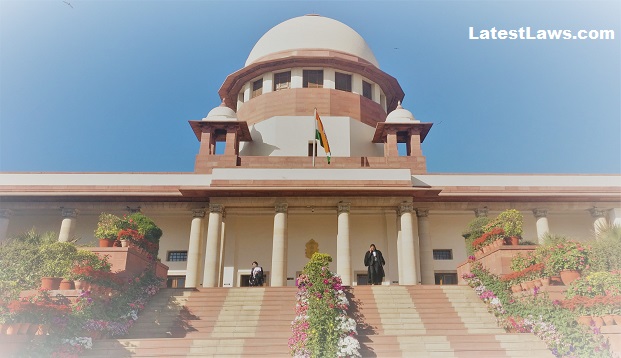July 24, 2018
The petitioner has highlighted that so far, there's no settled ruling on this question & that various HCs have answered this question differently.
The Supreme Court has issued notice in a petition posing the question, after observing that conflicting views exist on the subject matter whether an Arbitration application can be rejected on the ground that a party has sought leave to defend in a Summary Commercial Suit.
The Bench comprising of Justices Kurian Joseph & Sanjay Kishan Kaul heard the petition on Monday, noting that no SC judgement exists on this question of law & that various HCs have taken conflicting views on the same.
The main issue involved in this petition is if an application seeking leave to defend under Order 37 Rule 3 of the Code of Civil Procedure (CPC) amounts to “first statement on substance of the dispute” in terms of Section 8 of the Arbitration and Conciliation Act, 1996.
In this case, the petitioner respondent companies had been conducting business with each other & had entered into a Logistics Agreement & a Product Purchase Agreement. Both the agreements contained Arbitration clauses.
Owing to some dispute, the respondent had moved the Bombay HC in a Commercial Summary Suit, seeking a Court directed payment of a certain sum of money by the petitioner.
The petitioner, in line with the provisions of Order 37 Rule 3 of the CPC, filed an application seeking leave to defend within 10 days. Subsequently, the petitioner preferred a Notice of Motion under Section 8 of the Arbitration and Conciliation Act to refer the dispute to Arbitration.
The Single Judge & later the Division Bench of the Bombay HC, ruled in favor of the respondent & set aside the Notice of Motion preferred by the petitioner.
The petitioner has highlighted that so far, there's no settled ruling on this question & that various HCs have answered this question differently.
While the Madras HC in a case has held that an application under Order 37 of CPC wouldn't amount to giving in to the jurisdiction of the civil court & doesn't amount to “first statement” under Section 8, the Delhi High Court has held that leave to defend amounts to the first statement as envisaged under Section 8 of the Arbitration Act.
The petitioner has also stated that the 2 co-ordinate Benches of the Bombay High Court have also interpreted it differently. The Nagpur Bench has taken the Madras High Court’s view & the Principal Bench at Mumbai has agreed with the Delhi High Court’s view.
It's contended by the petitioner that an application filed seeking leave to defend is merely to see if there exists a triable issue before a Court. This application doesn't go into the merits of the case as is the case in “first statement” under Section 8 of the Arbitration Act.
Further, at the stage of filing an application seeking leave to defend, questions concerning maintainability of the suit are raised without going into the merits of the case. Filing this application can't mean that the petitioner has accepted the jurisdiction of the Court & given up the right to invoke Arbitration, the petition states.
The petitioner was represented by Adv. Dhruv Mehta, assisted by Advocates Udayaditya Banerjee & Durgesh Kulkarni and the Respondents were represented by Dr. Abhishek Manu Singhvi.
Picture Source :

























